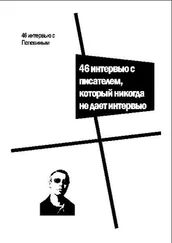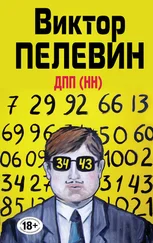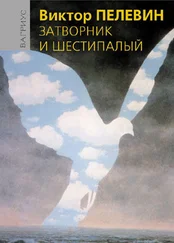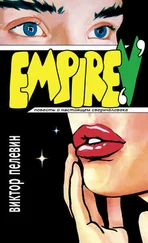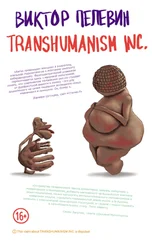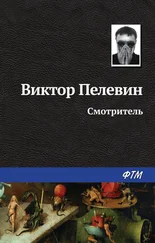Виктор Пелевин - Babylon
Здесь есть возможность читать онлайн «Виктор Пелевин - Babylon» весь текст электронной книги совершенно бесплатно (целиком полную версию без сокращений). В некоторых случаях можно слушать аудио, скачать через торрент в формате fb2 и присутствует краткое содержание. Жанр: Современная проза, на английском языке. Описание произведения, (предисловие) а так же отзывы посетителей доступны на портале библиотеки ЛибКат.
- Название:Babylon
- Автор:
- Жанр:
- Год:неизвестен
- ISBN:нет данных
- Рейтинг книги:5 / 5. Голосов: 1
-
Избранное:Добавить в избранное
- Отзывы:
-
Ваша оценка:
- 100
- 1
- 2
- 3
- 4
- 5
Babylon: краткое содержание, описание и аннотация
Предлагаем к чтению аннотацию, описание, краткое содержание или предисловие (зависит от того, что написал сам автор книги «Babylon»). Если вы не нашли необходимую информацию о книге — напишите в комментариях, мы постараемся отыскать её.
Babylon — читать онлайн бесплатно полную книгу (весь текст) целиком
Ниже представлен текст книги, разбитый по страницам. Система сохранения места последней прочитанной страницы, позволяет с удобством читать онлайн бесплатно книгу «Babylon», без необходимости каждый раз заново искать на чём Вы остановились. Поставьте закладку, и сможете в любой момент перейти на страницу, на которой закончили чтение.
Интервал:
Закладка:
Tatarsky had often walked past this building; a very, very long time ago someone had told him it was a secret institute where they developed new types of weapons. It seemed as though that must have been somewhere near the truth, because hanging by the gates like some hoary greeting from antiquity was a board bearing the crest of the Soviet Union and an inscription in gold: ‘The Institute of Apiculture’. Underneath it Tatarsky just had time to make out an inconspicuous plaque bearing the words ‘Interbank Committee for Information Technology’.
The parking lot was packed with cars and Morkovin barely managed to squeeze in between an immense white Lincoln and a silver Mazda racer.
‘I want to introduce you to my bosses,’ Morkovin said as he locked the car. ‘Just act natural. But don’t go saying too much.’
‘What exactly does "too much" mean? Who says what’s too much?’
Morkovin cast him a sideways glance: ‘What you just said is a good example. It’s definitely too much.’
After walking across the yard they went into a side entrance and found themselves in a marble hallway with an unnaturally high ceiling where several security men in black uniforms were sitting. They looked far more serious than the ordinary cops, and not just because of the Czech Scorpion automatics hanging at their shoulders. The cops just weren’t in the same league - for Tatarsky their blue uniform, which once used to radiate the oppressive power of the state from every button and badge, had long ago become an object of disdainful incomprehension - such a totally empty symbol only emphasised the absurdity of these people constantly stopping cars on the roads and demanding money. But the bodyguards’ black uniform was a real mind-blower: the designer (Morkovin said it was Yudashkin) had brilliantly combined the aesthetic of the SS Sonderkomande, motifs from anti-utopian films about the totalitarian society of the future and nostalgic gay fashion themes from the Freddie Mercury period. The padded shoulders, the deep decollage on the chest and the Rabelaisian codpiece blended together in a heady cocktail that made you want to steer clear of anybody wearing such a uniform. The message was crystal clear even to a total cretin.
In the lift Morkovin took out a small key, inserted it into a hole on the control panel and pressed the top button.
‘And another thing,’ he said, turning to face the mirror and smoothing down his hair: ‘don’t worry about looking stupid. In fact, be careful not to seem too smart.’
‘Why?’
‘Because if you do, a certain question will arise: if you’re so smart, how come you’re looking for a job instead of hiring people yourself?’
‘Logical,’ said Tatarsky.
‘And pile on the cynicism.’
‘That’s easy enough.’
The doors of the lift opened to reveal a corridor carpeted in a grey runner with yellow stars. Tatarsky remembered from a photograph that the sidewalk on some boulevard in Los Angeles looked like that. The corridor ended in a black door with no nameplate, with a small TV camera set above it. Morkovin walked to the middle of the corridor, took his phone out of his pocket and entered a number. Two or three minutes passed in silence. Morkovin waited patiently. Finally someone at the other end of the line answered.
‘Cheers,’ said Morkovin. ‘It’s me. Yes, I’ve brought him. Here he is.’
Morkovin turned and beckoned Tatarsky towards him from where he’d been standing timidly by the doors of the lift. Tatarsky walked up to him and raised his eyes dog-like to the camera lens. The person talking to Morkovin must have said something funny, because Morkovin suddenly giggled and shook Tatarsky by the shoulder. ‘That’s OK,’ he said, ‘we’ll soon take off the rough edges.’ A lock clicked open and Morkovin pushed Tatarsky forward. The door immediately closed behind them. They were in an entrance-hall where an antique bronze mirror with a handle hung on the wall below a golden Venetian carnival mask of astounding beauty. ‘I’ve seen them before somewhere,’ Tatarsky thought, ‘a mask and a mirror. Or have I? My mind’s been on the blink all day today…’ Below the mask there was a desk and sitting behind the desk was a secretary of cold avian beauty.
‘Hello, Alla,’ said Morkovin.
The secretary flapped her hand at him and pressed a button on her desk. There was the sound of a discreet buzzer and the tall sound-proofed door at the other end of the hall opened.
For a moment Tatarsky thought the spacious office with blinds drawn over the windows was empty. At least there was no on sitting at the immense desk with the gleaming metal supports. Above the desk, at the spot where a portrait of the leader would have hung in Soviet times, there was a picture in a heavy round frame. The coloured rectangle set at the centre of a white field was hard to make out from the door, but Tatarsky recognised it from its colours - he had one just like it on his baseball shirt. It was a standard label with the American flag and the words: ‘Made in the USA. One size fits all’. Mounted on another wall was an uncompromising installation consisting of a line of fifteen tin cans with a portrait of Andy Warhol on a typical salt-pork label.
Tatarsky lowered his gaze. The floor was covered with a genuine Persian carpet with an incredibly beautiful design that looked like the patterns he’d seen some time in his childhood in an ancient edition of The Thousand and One Nights. Following the lines of the design, Tatarsky’s eyes slid along a capricious spiral to the centre of the carpet, where they encountered the occupant of the office.
He was a man still young, a stocky, overweight individual with the remnants of a head of red hair combed backwards and a rather pleasant face, and he was lying on the carpet in a totally relaxed posture. He was hard to spot because the hue of his clothes blended almost perfectly into the carpet. He was wearing a ‘pleb’s orgasm’ jacket - neither business uniform nor pyjamas, but something quite excessively camivalesque, the kind of outfit in which particularly calculating businessmen attire themselves when they want to make their partners feel things are going so well for them they don’t have to bother about business at all. A bright-coloured retro tie with a lecherous monkey perched on a palm tree spilled out of his jacket and ran across the carpet like a startling pink tongue.
However, it wasn’t the young man’s outfit that astonished Tatarsky, but something else: he knew his face. In fact he knew it very well, although he’d never met him. He’d seen that face in a hundred short television news reports and advertising clips, usually playing some secondary part; but who the man was he had no idea. The last time it had happened was the evening before, when Tatarsky had been distractedly watching TV as he tried to think about the Russian idea. The office’s owner had appeared in an advertisement for some tablets or other - he was dressed in a white doctor’s coat and a cap with a red cross, and a blonde beard and moustache had been glued on to his broad face, making him appear like a good-natured young Trotsky. Sitting in a kitchen surrounded by a family in the grip of an incomprehensible euphoria, he had said in a didactic tone: ‘All these adverts can easily leave you feeling all at sea. And often they’re not even honest. It’s not so bad if you make a mistake buying a saucepan or a washing powder, but when it comes to medicines, you’re taking risks with your health. So who will you believe - the heartless advertising or your own family doctor? Of course! The answer’s obvious! Nobody but your own family doctor, who recommends that you take Sunrise pills!’
‘So that’s it,’ thought Tatarsky, ‘he’s our family doctor.’
Читать дальшеИнтервал:
Закладка:
Похожие книги на «Babylon»
Представляем Вашему вниманию похожие книги на «Babylon» списком для выбора. Мы отобрали схожую по названию и смыслу литературу в надежде предоставить читателям больше вариантов отыскать новые, интересные, ещё непрочитанные произведения.
Обсуждение, отзывы о книге «Babylon» и просто собственные мнения читателей. Оставьте ваши комментарии, напишите, что Вы думаете о произведении, его смысле или главных героях. Укажите что конкретно понравилось, а что нет, и почему Вы так считаете.

